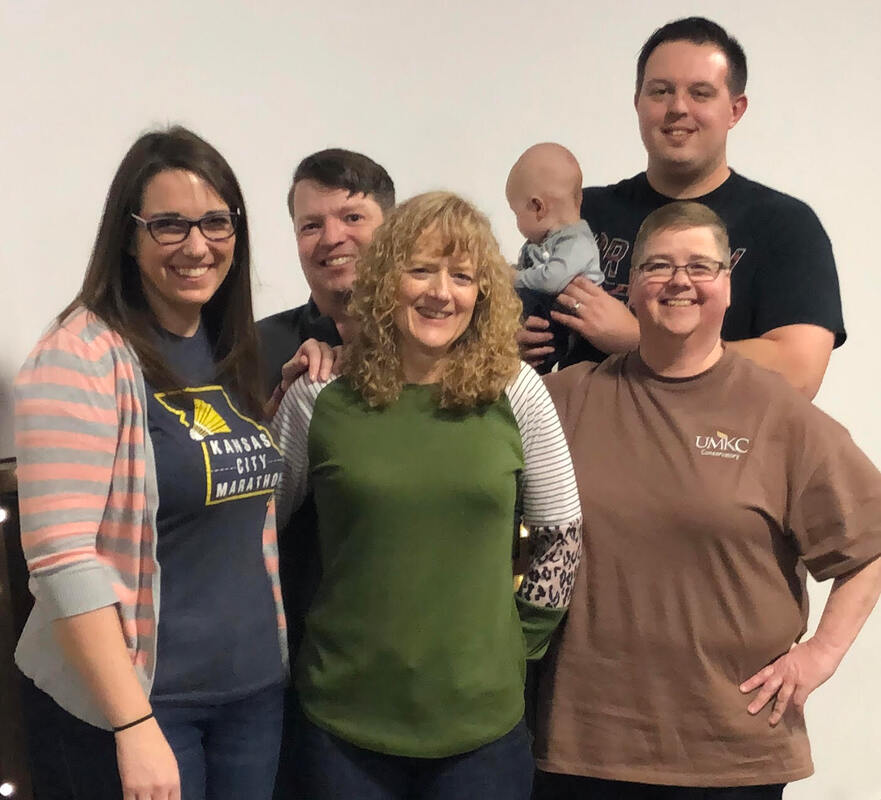|
By: Kathy Kent Toney, President of Kent Business Solutions I’m sure many of you in leadership positions have asked yourself these questions:
How can I do a better job of driving profitable growth in my business? How can I drive the right behavior of my employees? The options can be overwhelming. But there's one proven thing that can drive profitability...the effective use of KPIs. There’s been much talk these days about the importance of KPIs, especially with ever-increasing competitiveness among companies. Even so, many leaders either don’t use them or don’t effectively deploy them. You may be a newbie with KPIs or have been using them for years. Either, way, there’s always more to learn, right? That’s why I decided to interview David Leavitt, a Principal with ExecHQ. He’s a fractional C-Suite executive who is also advises companies on developing KPIs. So, let’s dive into it! Kathy: Welcome David. It's great to have you with us! David: Thank you. I'm very happy to be here. Kathy: Let’s start off with a brief definition of what a KPI is (for those who aren't familiar with the term). Then, can you give us some examples of them? David: Sure. KPIs, or Key Performance Indicators, are easily quantifiable data that allow companies to evaluate their success against specific targets and objectives. Organizations rely on these measures to strategically determine the quality of performance and gauge their progress. That is to say, the more you know your strengths and weaknesses, the better you're able to plan your operations, address issues and ensure productivity in the workplace. Some examples of KPIs might be:
There are a myriad of things you can measure to help drive the success of your business. Kathy: Makes sense. Can you tell us how valuable KPIs can be for business leaders? Also, if they aren’t using them, what are they missing out on? David: Many of the best companies have established a data-driven culture and they’re focusing on improving the data they already know about…through data discovery and investing in tools. It's safe to say that remaining competitive in the business world today depends on understanding such data. Using KPIs properly can greatly affect their decision-making capabilities and can improve the results of the business. Kathy: I agree. I think I could probably use a better selection of KPIs for myself! Do you have any advice for those who haven't used them before and how can they get started? David: Certainly. There's plenty of data out there. In fact, you can get overwhelmed with all the data that is created within a business, small or large; however, my advice is to keep measures simple. What I try to get people to do is focus on the top-20 most important areas of the business. If they do that and leave the 80% behind, they'll have a better handle on measuring the things that will give them the best and most important results for the business. When you arrive at the place where you are really good at using KPIs, you might want to invest in some technologies, such as business intelligence tools; however, you first need to define your goals and objectives and then put together your plan of what you're trying to achieve in the business. That will put you in a better position to measure the gaps in the plan. Kathy: Sounds good. Do you have some advice for leaders who have used KPIs for a while so that they can get even better at using them? David: Definitely. A good rule of thumb is to create KPIs that are in-line with your long-term business goals. These should be the major indicators that are most critical and crucial to your operations. The more you learn and discover, the more you will want to measure. So, stay focused on the indicators that are adding value. And for those that have been at it for a long time, I would suggest investing in a business intelligence platform or data analytics tool to reinforce your monitoring efforts, sooner than later. There are a lot of really inexpensive third-party data analytics companies that are available in the marketplace today as well. Kathy: That’s great advice, David. That’s a wrap. Thanks for joining us today! David: It was a pleasure. **** Speaking of platforms, one great way to measure KPIs is with Accelerate. It’s a workflow management tool that generates dashboards with pre-selected KPIs. You can create your KPIs in the system so that they are automatically populated through employee task accomplishment. That means managers are able to not only gauge team performance, but can drill-down to view individual employee performance. This can provide data that leads to more effective coaching for under-performing teams and employees. This is just one of many benefits Accelerate provides. Interested in learning more? Click the button below to schedule a time to chat!
0 Comments
By: Kathy Kent Toney, President of Kent Business Solutions Photo by Paul Chambers on Unsplash I was talking with my amazing sales coach today, Breandan Filbert, and she brought up a topic we’ve hashed over many times. She pretty much said this… “Kathy, you do a great job of promoting other people. Now you need to really start promoting yourself more!” Okay, I get the point. I do love to help other people out…it’s just my nature. I’m all about providing value to everyone I meet. I must admit...I'm enough of an introvert that it hasn’t always been that easy to promote myself. So, I’m taking her challenge head-on by discussing the success I had on a project with one of my amazing clients. Prior to my engagement with this particular manufacturer, they had a very cumbersome, rigid product development process. There was no wiggle room for jumping ahead in the process, when necessary, to accomplish tasks. It was like they were stuck in the mud. One of the biggest issues was the approval packet that would get buried on people’s desk, waiting for sign-offs. This is just one of the reasons why it took them two-to-three years to develop their last new product! Considering there’s no smart technology in their product line, this took them waaay too long! The CEO knew there was a better way. That’s why he hired me. As a certified Professional Scrum Master, this was right up my alley. Not sure what Scrum is? A short definition is this: it's a project management framework for developing products, primarily software. But since this proposed project involved a physical product, there was that added challenge to address. So I dove right in! The first step I took was to delve into their previous development issues. I carried those lessons learned over into the new process to prevent them from happening again. Next, I trained them on Scrum and we developed the new process together. In just two months, I got them up-to-speed with their Scrum process and left the project in their very capable hands. And the results were great! Eight months later, they launched not only their originally planned product, but five other component systems as well that fit across their whole product line. If you take the additional products they developed into account, they experienced a product speed-to-market increase of over 100%! They are so thrilled with Scrum, they're well on their way to using Scrum across their whole business, including service functions like Marketing. They’ve experienced great results in these areas as well. So, if you want to prevent your project from getting stuck in in the mud and want to kick it into high gear, Scrum could be your answer! **** Now that I’ve shamelessly plugged myself 😂, I’d like to switch back to promoting someone else! My strategic partner, Michael Cantu’, has developed this amazing app called Ratify AI, which is meeting an important need in the market…how to holistically manage COVID vaccine protocols in the workplace. It’s been created in consultation with medical experts and lawyers who are are in-the-know on this topic. It does away with manual daily health checks and tracking with spreadsheets, to name just a few benefits. If you’d like to learn more about that, click the button below to download our FREE COVID Management Checklist. It will help you gauge the fitness of your current protocols and point out areas where you can improve. I’d love for you to check it out!
By: Kathy Kent Toney, President of Kent Business Solutions I look at this picture and smile… One of my passions is playing guitar and singing on my church’s worship team. Sometimes I’m even the leader of the band! These are my friends and fellow band mates in the picture (with the exception of the baby, of course…lol). I smile, because we make a great team. We’ve made great music and have had a lot of fun together in the process. I say all this as a backdrop to what I’d like to write about today. If you’re not familiar with what I do, I’m all about helping organizations to increase their profitability beyond their imagination…through streamlined operations and digital transformation strategies. One essential building block for true transformation to occur is great teamwork. Since I’ve learned so much about this from leading a band, I thought it would be great to give you some real-life examples to illustrate some team building best practices you can apply to your own teams. Let’s dive in! Great teams…. 1. Come Prepared to Work, Yet Don’t Take Themselves Too Seriously It makes sense that our team does best when everyone comes prepared. And even when they don’t, taking a lighthearted approach can really be effective. For instance, my worship pastor kept making mistakes one morning and I was actually really prepared. I kept making fun of him: “Hey, you’re the one who’s supposed to be prepared!” We all laughed at his expense and that loosened everyone up. Lessons Learned: Do the necessary homework to lead your team. And when you find yourself in a situation where you aren’t prepared, be quick to make fun of yourself or laugh at your own expense when your team members poke fun at you. And it’s important to create that environment where team members feel safe to do that. 2. Make Sure Everyone’s on the Same Page As a band leader, I’ve learned the importance of making sure that team members play or sing the right thing in the right place at the right time. This often involves giving specific directions well in advance of our rehearsal. For example, I’ll make sure to tell the electric guitarist to play a particular riff in one section of a song. This helps our rehearsal to go much smoother. This also involves giving special attention to new team members, including time outside rehearsals, so they can feel more welcome and be more easily integrated into the team. A great example is something I did last week…I worked on-on-one with a new background vocalist who to prepare for this weekend to help her prepare here and also lessen her nerves. The result…she did great and really enjoyed herself! Lessons Learned: Give specific directions to team members well before you typically would to help ensure projects stay on track. Also, take specific actions to help new team members to be quickly assimilated into the team. This can help with their morale and future contributions to the team. 3. Work Through Obstacles with Grit and Grace One Sunday, the worship pastor was out of town and I was left in charge. I had done everything I knew how to prepare, but everything went off the rails during rehearsal. We had three new team members, and since I was relatively new at leading, I didn’t know what direction to give to the new team members to make it work. My frustration level was pretty high, but I still lead with grit and grace. Despite our challenging rehearsal, we did relatively well during the service. Lessons Learned: Keep forging ahead during challenging times, keeping your team encouraged and giving calm, level-headed direction to hold them together. This sets the tone for them to continue working towards achieving team goals. 4. REALLY Learn from Your Mistakes After that challenging Sunday, it became evident is that I have a few things to learn about being a better leader to the team! I lacked the experience to do #2 above (Make sure everyone is on the same page). I discovered I needed to learn more about the drummer’s and keyboardist’s role in a band…that was my problem that day. So, I have my homework cut out for me before I lead again. AND, then I’d be more equipped to do #2! One great outcome is this…if this hadn’t of happened, I would’ve never learned what was needed for me to get better. Lessons Learned: Take an objective view of your mistakes without judgment and latch onto the opportunity to learn from them. By taking action on those areas, you’ll improve your team building and leadership skills 5. Create Feedback Loops for Improvement Purposes One thing I did that Sunday was ask for feedback from the team as I was running the rehearsal. Since I didn’t know the next best thing to do, I asked for their thoughts. As the team worked together, we were able to iron out the biggest problems and make it work in the end. Lessons Learned: Individual team members are often your best source of advice in helping to overcome obstacles. Many times, they know a lot more than you do about different aspects of your projects. Let them know that you are always open to advice to help the team run better. 6. Have Fun Together I left this one for last, because if you do all the above things, your team is much more apt to have fun together. Remembering to laugh at yourself and laugh together is a key part of that. That’s one reason why I smile when I look at the picture above…we’ve worked through all these five areas at various times to become a great team that has fun together. Great teams do that. Lessons Learned: Creating that culture of fun can make all the difference in the success of projects. When you can celebrate your victories, overcome your obstacles with grit and grace and still laugh together, you’re helping to create that fun culture. And that’s a great building block for great teamwork. **** Speaking of teamwork, how many of you are challenged to engage your remote workforce? Would you like to create a fun culture within those teams? If that’s you, I’ve created a free cheat sheet on how to engage your remote workforce. Just click the button below to download it! Part 2 of a 2-Part Series: How to Have Superhero Confidence! By: Kathy Kent Toney, President of Kent Business Solutions Photo by: The Lazy Artist Gallery from Pexels How many of you have made a big mistake that dented your self-confidence and then it took a long time to get it back? If you’d like to learn how to recover more quickly, you’ve come to the right place! Last week I had the pleasure of interviewing Isaac Wambua, a speaker, coach and owner of Synergy Business Solutions. He spoke on the subject of how our past affects our self-confidence. He’s back this week to continue the discussion. This go-around he’ll give us some strategies and tactics on how to increase self-confidence…on demand. Kathy: It’s great to have you back, Isaac! Isaac: it’s great to be back! Kathy: One thing I've seen frequently, and even with myself, is people can be so hard on themselves and that can really decrease self-confidence. For those who judge themselves too harshly, what advice do you have for them? Isaac: That hits home for me, too. That hits home for me, too. I'll tell you what you can do, based on my experience, but before I do that, I'm going to tell you a story. When I started my business seven years ago, I did it part-time for two years. Then I decided to go full-time in 2016. And I wanted to go big. I wanted to launch this business in one piece, letting people know in town that I was in business. I think I was a little bit cocky! For the launch, I decided to put together a big event at the Marriott. I had a good number of people to show up. I brought in a few other speakers, but I was the main speaker. As the event unfolded, according to me, it was horrible…especially my session. It was all recorded. Later, I tried to watch it, but I couldn’t do it.! I kept on putting it off for a week and that stretched into months. Guess how long it took before I watched that video? Six months! I didn’t want to, because I was so scared. I didn't want to watch myself messing up and embarrassing myself in front of people. It really messed with my self-confidence. I remember during those six months I got a few clients here and there, but I didn't have the confidence to go out there. I didn’t realize how much not watching that video affected me! Finally, I decided to sit down and watch it. And let me tell you this…it was one of the best presentations I had ever done! To think that I had been beating myself up for six months! Instead, I could have used that video for marketing purposes and could have gotten more business out of it. This whole thing taught me lesson. It's not as bad as we think it is. And sometimes we judge ourselves too harshly, more than anyone else. The people that attended told me it was great, but because it was stuck in my head that it was a very bad experience and a very bad presentation, that’s what I truly believed. So, for those who are too harsh on themselves. This is what I will tell you…it's not as bad as you think. We judge ourselves too harshly. What you need to do is to take those mistakes in stride. We’re all going to make mistakes, but don't be too hard on yourself. You are learning and growing, it's an experience every step that you take. Even when you think you've messed up, it’s taking you somewhere. So just step out there and be okay to even make fun of yourself! My speaking coach once told me: “Isaac, I want you to go out there and make a big, big mess. Just embarrass yourself, use the wrong words, if you want. Use the wrong body language.” What I'm telling you is this…don't overthink it. Just do it. And that was some of the best advice I've ever received. So, for those who are too harsh on yourselves, you can lighten up. So often, we worry too much about what people are going to say or think about us, but this is the truth: what people say about you is an opinion. An opinion can be changed, but what you say about yourself becomes the truth…it becomes a fact. So, be careful about what you say about yourself. So, in short, just get out there and do it! Kathy: I just saw a quote the other day and it said something along the lines of not worrying about what other people are thinking about you, because they're thinking about themselves. Isaac: That’s so true! They’re not even thinking about you, the whole time. Kathy: And sometimes it's just so easy to get stuck in your head. What advice do you have for people who get stuck in their head too much? Isaac: I would tell them not to think about themselves and use affirmations. The word “affirmation” comes from the word “affirm”, which is to confirm that this is who I am. We said last week that confidence is an ability…it's a skill. So, there are two things you can do. First, you always have some kind of a potential within you that you can cultivate. So, tap into that…affirm to yourself. For instance:
So, these are some of the affirmations you can tell yourself. Second, know that it's a process…nobody is ever born with a skill. Since self-confidence is a skill that you develop, you're working on developing it every single day. Every time you get in front of people and you present for two minutes, even when your hands are shaking, you're growing. Every time you put together a blog and you get scared, because you think nobody is going to read it, or at least two people are going to read it and criticize you…remember, you are growing. At some point in time, you're going to wonder…how did I get this confident? My advice to you is to just keep going. Kathy: I love the idea that it’s a process…it’s something we're going to work on for the rest of our lives. That will be wrap for today. Thanks for joining us today, Isaac! I certainly learned some great tools to use to grow my self-confidence. Isaac: Thanks for the opportunity! ***** Speaking of tools, how many of you would like to gauge the fitness of your organization, and at the same time pinpoint which areas of your business could use the most attention first? I’ve created the FIRM Fitness Assessment, in tandem with over 15 executives that have over 300 years of experience, to accomplish just that. Interested in test-driving what this might look like? Then take my FREE business assessment! This scaled-down version will give you an idea of what it’s like. Once you’re done, I’ll send a report with the findings. Click the button below to get started! Part 1 of a 2-Part Series: How to Have Superhero Confidence! By: Kathy Kent Toney, President of Kent Business Solutions Photo by Moose Photes from Pexels One thing I’ve heard a lot these days among professionals is an ever-creasing need to grow one’s self-confidence. This is especially the case in the midst of our post-pandemic world. The fall-out of making mistakes can be exponential in today’s business environment. The importance of being self-confidence can’t be overstated! That’s why I decided to interview my friend, Isaac Wambua, to talk on ways business leaders can increase self-confidence. He’s an amazing speaker, coach and owner of Synergy Business Solutions. Kathy: Welcome Isaac it's great to have you here! Let's start off with your definition of self-confidence. Isaac: I see self-confidence as the ability to go after the things that you want to go after, to be able to ask for the things that you want. I also see it as having that ability to step out of your comfort zone. I think that's what confidence is all about. Kathy: Does a lack of self-confidence have anything to do with your past, and if so, to what extent? Isaac: Yes, but I don't think people really lack confidence…they just don't have enough of it, because there is no way you can have a lack of confidence every single day. You may start out the day with high levels of self-confidence. Then, as the day goes by you, you find that it goes down, because some things may have happened to cause that. So, to an extent, yes…your past can cause insufficient levels of self-confidence or at least a fading of your self-confidence. Kathy: I’ve definitely experienced that myself. I’ll start off the day, just brimming with self-confidence and then something happens to change that. I may get off-track for a bit, but then I’ll have to redirect myself, to decide to keep forging ahead to get the things done that are on my plate to do. Isaac: Yeah, that's true. And when you think about it, your self-confidence is a combination of factors that contribute to that. Sometimes it’s something that has been said to you, something that happened, or something that you're trying to accomplish and it doesn't come out the way you wanted it to. And then an aspect of self-doubt can kick in…you start questioning yourself and your abilities. So, it's a combination of all these things. So, going back to the question of how your past can affect your self-confidence. It depends on the environment you grew up in. Imagine this… If your family you grew up in was loving and affirming, you are likely to have high self-esteem and high self-confidence. If you were told that you could accomplish anything that you wanted to or that you put your mind to, you're likely to have that aspect of self-confidence. On the other hand, if you grew up in a family that put you down…you were told you were not good enough or you were compared with your siblings or your cousins…you get the picture. Then, you went to school and it didn’t make your situation any better, because the grading system doesn't help. You may have felt like you had to be a straight “A” student. Then if you didn’t make those grades, you may have felt like you weren’t good enough. I'm saying this, because I went through this myself. I grew up in an environment where you’re supposed to be #1 in your class. I was made to believe that I had to be not just an “A” student…I had to be #1. So much pressure! But I came to realize it's not all about being #1; it's about being your best. That’s really the message I'm personally pushing this year. I'm telling my community and the people that I interact with that your best is the best. All that is needed is your best. So, the environment that you grow up in has a big impact on your self-confidence. But you can even grow up with high self-confidence and have that tendency change when you, for instance, get married to someone who puts you down or doesn't believe you're good enough. In that instance, your self-confidence is likely to go down. Any of these scenarios can be as recent as a few years ago or way back when you were young. So, yes, the past does have some impact on your self-confidence. Kathy: Yeah, I can really relate when you were talking about grades. I had to be #1 in the class and I had to get A's. And that contributed to my overachieving tendency for most of my life, because my parents really expected a lot of me. Also, you spoke about how events of the day can affect your self-confidence. I just had an experience recently that took a dent in my self-confidence. In those situations, I’ve learned the best thing I can do is to learn from that and work through those things. Doing that helps grow self-confidence…through overcoming obstacles and barriers that we all encounter in our lives. Isaac: I like that you used the word “overcoming.” It's not about getting rid of your challenges and obstacles that you have, but overcoming those. Self-confidence is more an ability or skill that you can develop. That means you can get confidence on-call, on-demand, when something happens and it knocks you down. There are few things that you can do to regain that confidence, to at least move forward. That centers around the ability to go after the things that you want. So, if you face an obstacle, there are some things you can do, both physically, mentally and emotionally, to be able to overcome that and go to the next level. And the problem is if you don't take those actions proactively, then your confidence is going to go down and you're going to have self-doubt. At some point you are likely to think…this is not going to work, and then you give up. Kathy: That certainly makes sense. I’m glad you’re coming back next week continue our talk on this subject. Can you tell us a little bit about that? Isaac: Yes. Next week I really want to share some strategies and tactics on how to regain your confidence. Your past does not equal your present and there are some things that you can do, like I said, to get self-confidence, on-demand. So, we'll talk about those strategies, and also how to overcome any kind of traumatizing past that affects your confidence. You can get past that! You can anticipate growing that confidence to go after promotions, growing your business, or leading a team…whatever makes sense for you…the type of confidence that opens doors for you. And it won’t take months or year…it’s something that you can do within minutes. Kathy: I don't know about the rest of you, but I’m looking forward to that! Thanks for joining us, Isaac. This has been really good and we are looking forward to having you back next week, Isaac: It was great being here! **** It's so great having Isaac as one of my amazing alliance partners. He's one of 15 who provide solutions to my prospects and clients. The rest of them are equally amazing, with over 300 years of executive experience! And that's where I love to come in...to connect them with companies that want to improve their operations. If you find yourself in need of any type of professional to help your business thrive and grow, I’d love to be a referral source for you. You can just click on the button below and we’ll set up a time to chat about your situation…to discover how we can be of assistance to you! |
Archives
July 2024
Categories
All
|










 RSS Feed
RSS Feed
